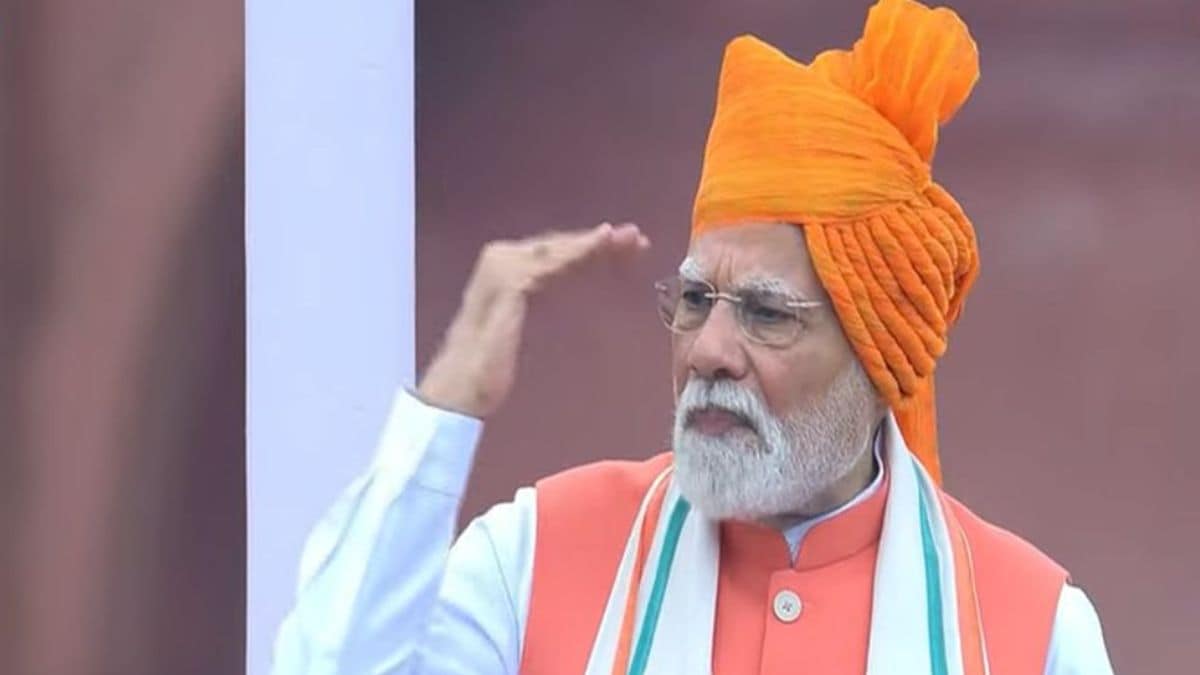

India celebrated its 79th Independence Day with Prime Minister Narendra Modi addressing the nation from the Red Fort for the 12th consecutive time. The theme of this year's celebration was 'Naya Bharat', reflecting the government's vision of achieving 'Viksit Bharat' by 2047. In his address, the Prime Minister emphasized self-reliance in critical sectors, particularly critical minerals and defense, and cited Operation Sindoor as an example of India's strength and resolve.
PM Modi stressed the importance of "Aatmanirbhar Bharat" (self-reliant India) as the foundation for a developed India. He stated that over-dependence on others fades the very question of freedom, and self-reliance extends beyond imports, exports, rupees, pounds or dollars. It is directly connected to India's strength. He expressed confidence in the youth of the country to realize the vision of a developed India by 2047 and urged exploration of ways to develop indigenous fertilizers for farmers. He also highlighted the need for self-reliance in critical minerals and noted progress in that direction.
A key highlight of the Independence Day celebrations was the acknowledgement of Operation Sindoor. President Droupadi Murmu, in her address on the eve of Independence Day, termed the April 22 Pahalgam terror attack as "cowardly and utterly inhuman" and asserted that India's response through Operation Sindoor was carried out "in a decisive manner and with steely resolve". She stated that Operation Sindoor demonstrated the preparedness of the armed forces to meet any eventuality in guarding the nation. She expressed her belief that Operation Sindoor would be remembered as a historic example in the fight against terrorism. Defence Minister Rajnath Singh said that Operation Sindoor signaled that India is no longer bound by traditional boundaries, but is using modern technology, accurate intelligence and smart military strategies to target terror.
Operation Sindoor was India's response to the April 22 Pahalgam terror attack that resulted in the death of 26 people. Launched on May 7, it involved strikes on nine terrorist camps in Pakistan and Pakistan-occupied Kashmir, neutralizing over 100 terrorists. Pakistan responded with missile and drone attacks, which India successfully defended against and retaliated with strikes on Pakistan’s air bases. The operation showcased India's indigenous defense capabilities, including systems like Akash and BrahMos missiles.
PM Modi lauded the armed forces for their actions during Operation Sindoor, stating that they punished enemies beyond their imagination and that new details of the damages suffered by Pakistan were emerging daily. He made it clear that India would not tolerate Pakistan's nuclear blackmail. The Prime Minister said that India will not differentiate between terrorists and those supporting them and that the armed forces will decide on punishment in case of any future misadventure from the neighboring nation.
The success of Operation Sindoor has been attributed to cutting-edge technology and the 'Make in India' initiative in defense production. India successfully utilized drones, layered air defense, electronic warfare, and network-centric operations, proving its reduced dependence on foreign technology. Rajnath Singh described India's actions during the operation as “a shining example of a precise and successful military strategy, and a glimpse of a new vision, technological advancements and self-reliance”.
PM Modi also emphasized the need to produce "Made-in-India" jet engines for fighter aircraft.